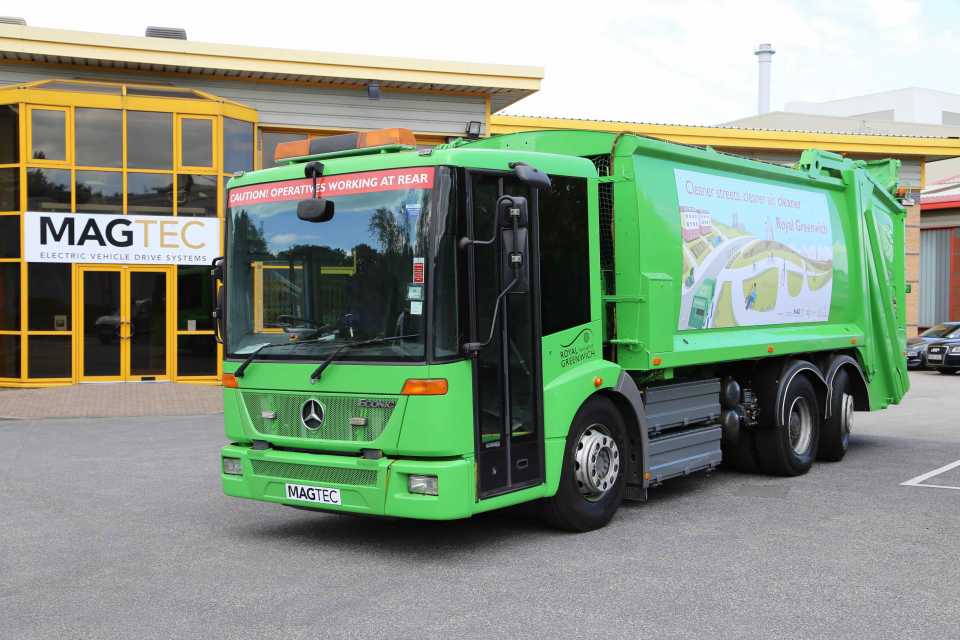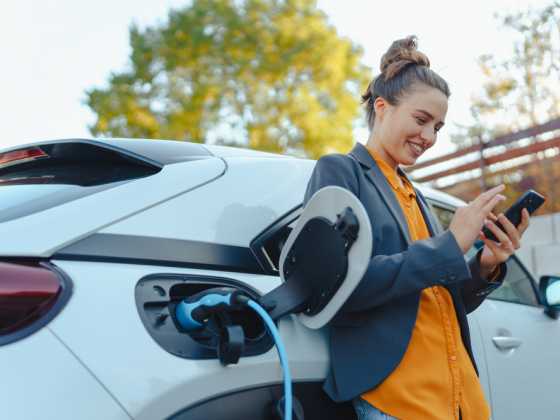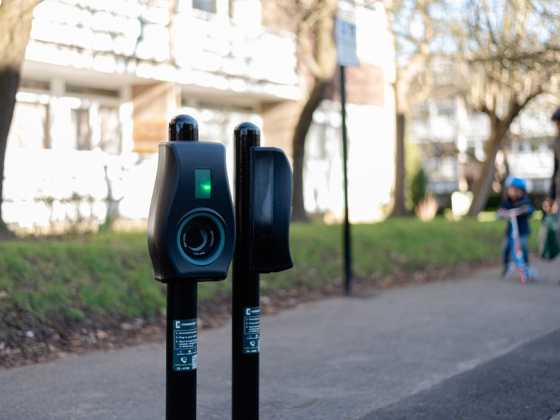End-of-life bin lorry recycled with electric power

A refuse collection vehicle at the end of its working life has been re-engineered with an electric motor to take part in ‘real world’ trials in Greenwich.
It is hoped that ‘repowering’ will greatly extend the working life of high value commercial and local authority vehicles, and cut air and noise pollution in residential areas.
The Greenwich trials will test the viability of the technology and make the economic case for repowering heavy commercial vehicles. The prototype will be tested alongside the existing refuse fleet, managed by the Royal Borough of Greenwich.
Refuse lorries operate in largely residential areas, with their diesel engines in constant use 14 hours per day, achieving only 2.5 – 4.5miles per gallon, having emissions that include nitrogen oxide (NOx), carbon monoxide (CO), hydrocarbons (THC and NMHC) and particulate matter (PM), which is essentially soot. By replacing the diesel engine with an electric motor, the eRCV produces zero emissions in operation. It also greatly reduces noise pollution – a significant issue for urban residents.
It is estimated that the repowering modification will double the vehicle’s operational life, extending it to 14 years, and generate a lifetime cost saving of up to £300,000 compared to a Euro 5 or older diesel powered model.
The trial marks the culmination of a year long technical development by a consortium comprised of Magtec, a UK technology firm specialising in the electrification of vehicles, the Royal Borough of Greenwich and its urban innovation agency, DG Cities. The project was part funded by Innovate UK, the Government’s research and development lead.
The eRCV is a 26-tonne battery-powered, zero-emission refuse vehicle designed to do a 14 hour ‘double shift’ duty-cycle without needing to recharge. This is an industry leading performance.
The eRCV project anticipates both growing demand for refuse vehicles and new air quality legislation that will affect 60,000 vehicles in London.



